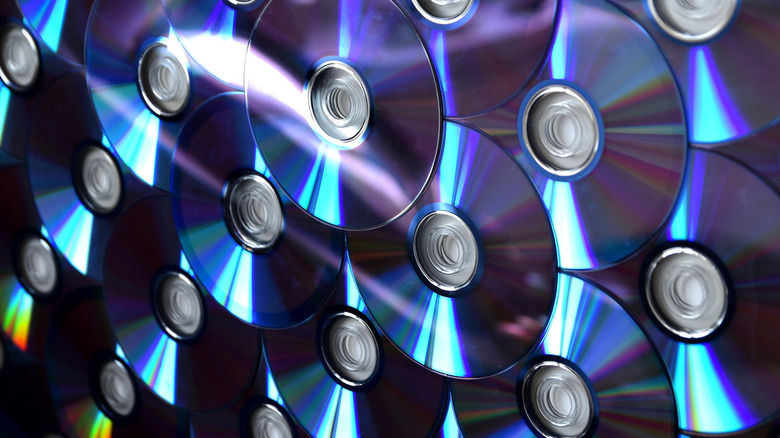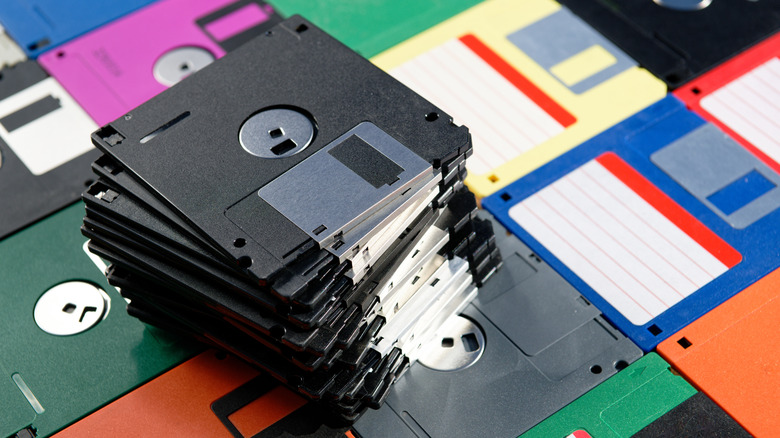Disc Vs. Disk: What's The Difference In Tech?
English is such a bizarre language. There are countless instances of pronunciation inconsistencies, idioms exclusive to the language, words that are spelled exactly the same but mean completely different things, and grammar rules that are constantly broken. One other thing we see a lot in English is spelling inconsistencies. Depending on where you are in the English-speaking world, the same word could have different spellings. This shows itself in words like color and favor. The United Kingdom adds a "u" to these words, spelling them colour and favour. It's this geographically specific spelling that led us to have the words disk and disc.
The original breaking apart of this spelling comes from Latin and Greek. The former used the word discus to describe a circular dish, whereas the Greeks spelled this word diskos. Obviously, these are anglicized spellings of these words. As time marched on and the shortened English words came about, disk became a far more popular spelling usage in the United States, and disc would be what you would see in other English-speaking countries.
Nowadays you see both of these spellings quite often no matter where you are, particularly when it comes to technological applications. Instead of being different spellings of the same word, disk and disc are now used to distinguish between two different types of media storage devices. That being said, that distinction does come about thanks to the United States' preference for spelling the word with a "k."
Optical vs. magnetic media storage
When it comes to media storage, the use of the word disc goes back to the 19th century, when Alexander Graham Bell, Chichester Bell, and Charles Sumner Tainter recorded sound on a glass disc using a beam of light. This light-based method is known as optical storage and is still used today with things like CDs, DVDs, and Blu-rays. The music industry ended up leaning into the "disc" usage — compact disc for CD and disc jockey for DJ — after the French term for "music club," which was "discotheque," meaning music library. Shortening discotheque is how we ended up on the term "disco" for the popular '70s music genre.
The computing industry, on the other hand, went the other way. IBM released the very first hard disk drive (HDD) for a computer. Being an American company, IBM naturally landed on the "disk" spelling when creating HDDs. Rather than use an optical process for storage, this drive used magnetic tape to store its data. To this day, HDDs as well as the seemingly dead floppy disk use magnets to store data. Solid state drives (SSD), on the other hand, use electricity for storage and have become a popular alternative to HDDs, despite SSD prices going up.
It has become incredibly commonplace to refer to optical storage devices as discs and magnetic ones as disks ever since. There is a practical reason behind the two names now, but it started off as just a weird quirk of the English language.

